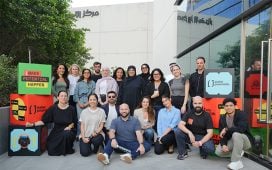VivaKi’s chairman for the MENA region, Alex Saber, looks at how media agencies should unlock the power of change in a highly complex media landscape
“Over the past decade or so, a maelstrom of change has punctuated the global media industry. Driven by the ever-expanding digital revolution – which, in turn, has led to major shifts in consumer behavior and an entirely new library of media terminology – we have witnessed, throughout the years, a stream of events tear, alter and remodel the very fabric of the com-munications landscape. And, even today, these powerful winds of change show no signs of abating.
In fact, with the rise of multi-screen content consumption, access to pioneering data analytics and the emergence of a plethora of social and digital media channels, the communications industry is currently at its most critical juncture. With continuous access to real time projections – and in order to keep abreast of evolving behavioural patterns – media agencies in this day and age are forced to operate through the lens of innovation. We can no longer afford to feel encumbered by rapid change – shifting circumstances have become a defining and integral part of our business.
With more than 25 years of industry experience, I learnt, early on, that in this part of the world, major paradigm shifts within the media industry are certainly not the only challenges to overcome. The truth is, the geopolitical context of the Middle East and North African region has, over time, continued to provide a rather complex backdrop for both media and business practices. In recent years, with the uprisings that have swept the Arab world and wider political instability plaguing the Levant countries, media agencies have faced a slew of regulatory and logistics limitations – all far removed from the realm of communication. And, until today, this particular climate creates some difficult paths for media organisations to tread and navigate.
In the MENA region – more than anywhere else – leveraging change to generate competitive market advantage is more than just a necessity for a media agency; it is a prerequisite for survival. Specific campaigns, digital penetration, content creation and consumer trends must all be measured and gauged within an ever-changing, larger framework. This has been especially evident in past years, as we have seen the undeniable power and influence of social media as well as its impact on civic engagement and on how consumers respond to brands and each other.
In reality, serving as a human understanding resource, placing consumer behaviour at the core of their business ethos and offering integrated, cutting-edge communication solutions constitute the true pillars of success for media agencies. And so, even in the most trying of times, it is about ensuring that core values – integrity, innovation and quality – never waver.
Despite fluctuating market conditions, a media agency’s strategy should never deviate from its overriding mission – the delivery of value. This is key to building a leadership legacy and fostering a per-formance culture whereby breakthrough ideas, strong teamwork and integrated thinking help build brands and propel them forward.
Furthermore, in this digital age filled with people meters, return on investment (ROI) techniques and touch point tracking, relying on data tools alone to ensure outstanding results is not enough – media agencies must continue to place high value on human resources. After all, talented, cross-functional people are, essentially, what make the difference.
Today, full-fledged, integrated communications ag-encies should work to create multi-channel initiatives – via both traditional and digital media – that translate into adequate consumer touch points, cultivate consumer engagement and provide an enhanced user experience.
This vision is precisely what forms the crux of our purpose. It is not about being sidetracked by a unique set of circumstances – instead, media agencies operating in the MENA region should create a business environment entirely conducive to the forces of change.”









